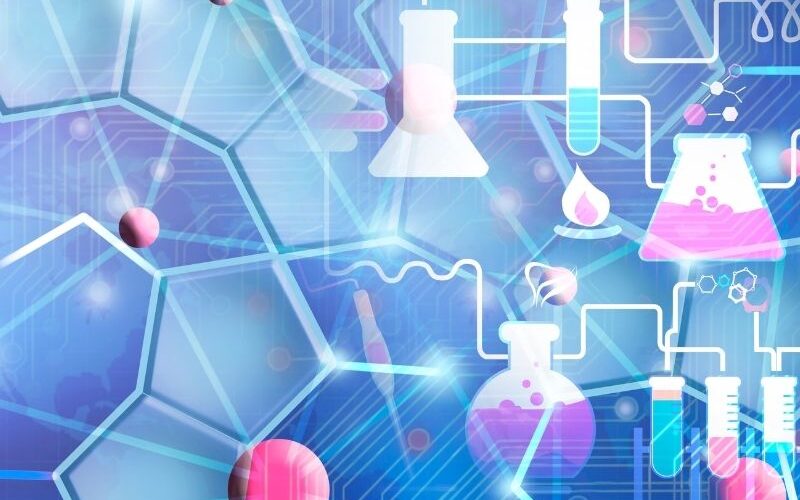Study Guides
The Role of Practical Work in IB Chemistry: Enhancing Understanding Through Experiments
- September 11, 2024
- Posted by: web.navpreet@gmail.com
- Category: Uncategorized

In the rigorous world of International Baccalaureate (IB) Chemistry, practical work stands as a cornerstone of learning and comprehension. The hands-on nature of laboratory experiments not only complements theoretical knowledge but also deepens students’ understanding of complex chemical concepts. This blog explores the pivotal role of practical work in IB Chemistry and how experiments enhance student learning and engagement.
The Importance of Practical Work in IB Chemistry
Practical work in IB Chemistry is essential for several reasons:
- Bringing Theory to Life
- Experiments translate theoretical concepts into tangible experiences. For instance, while learning about chemical reactions, students can observe reactants transforming into products, providing a concrete understanding of reaction mechanisms and equilibrium.
- Developing Laboratory Skills
- Practical work helps students develop crucial laboratory skills, such as measuring substances accurately, handling chemicals safely, and using scientific equipment. These skills are fundamental for conducting reliable experiments and obtaining valid results.
- Enhancing Problem-Solving Abilities
- Laboratory experiments often present students with unexpected results or challenges, encouraging them to think critically and troubleshoot. This process hones their problem-solving abilities, which are essential for both exams and real-world applications.
- Fostering Scientific Inquiry
- Practical work encourages students to ask questions, design experiments, and analyze data. This scientific inquiry process is at the heart of IB Chemistry, helping students develop a deeper appreciation for the scientific method and its applications.
Key Aspects of Practical Work in IB Chemistry
- Designing and Conducting Experiments
- Students are required to design their own experiments to investigate specific questions or hypotheses. This involves formulating a clear research question, designing a method, and conducting the experiment while adhering to safety protocols. Such tasks enhance their understanding of experimental design and scientific inquiry.
- Analyzing and Interpreting Data
- After conducting experiments, students analyze their results using various techniques, such as graphing data and calculating statistical measures. Interpreting data helps them draw meaningful conclusions and understand the implications of their findings.
- Reflecting on Experimental Procedures
- Reflecting on the experimental process, including any errors or limitations, allows students to evaluate the accuracy and reliability of their results. This reflection is crucial for improving future experiments and understanding the nature of scientific research.
- Integrating Practical Work with Theory
- Practical work is integrated with theoretical lessons, reinforcing concepts learned in class. For example, after studying acid-base titrations theoretically, students perform titration experiments to observe the concepts in action, solidifying their understanding.
Benefits of Practical Work in IB Chemistry
- Increased Engagement and Motivation
- Hands-on experiments make learning more engaging and enjoyable. The excitement of conducting experiments and seeing real-time results motivates students to explore chemistry more deeply and develop a lasting interest in the subject.
- Improved Understanding of Complex Concepts
- Some chemistry concepts are abstract and challenging to grasp through theory alone. Practical work provides a visual and experiential context that helps students better understand complex ideas, such as reaction kinetics and thermodynamics.
- Preparation for Further Studies and Careers
- Practical skills gained through IB Chemistry are valuable for further studies in science and engineering fields. The experience of designing experiments, analyzing data, and working with laboratory equipment prepares students for university-level coursework and scientific careers.
- Enhanced Collaboration and Communication Skills
- Many experiments are conducted in pairs or groups, fostering collaboration and communication among students. Working together on experiments helps students develop teamwork skills and learn to effectively share and discuss scientific ideas.
Challenges and Considerations
While practical work offers numerous benefits, it also comes with challenges:
- Safety Concerns: Ensuring safety in the laboratory is paramount. Students must be trained in proper handling of chemicals and equipment to prevent accidents.
- Resource Limitations: Some schools may face limitations in terms of laboratory resources and equipment. Creative solutions and careful planning can help address these challenges.
- Time Constraints: Balancing practical work with theoretical lessons and exam preparation requires effective time management.
Conclusion
Practical work is an integral component of the IB Chemistry curriculum, playing a vital role in enhancing students’ understanding of chemical concepts. By bringing theory to life, developing essential laboratory skills, and fostering scientific inquiry, experiments make learning chemistry a dynamic and engaging experience. As students navigate the complexities of chemistry, the hands-on nature of practical work prepares them for further studies and future careers, making it an invaluable aspect of their educational journey.
Embracing practical work not only enriches the learning experience but also empowers students with the skills and knowledge necessary to excel in the field of chemistry.